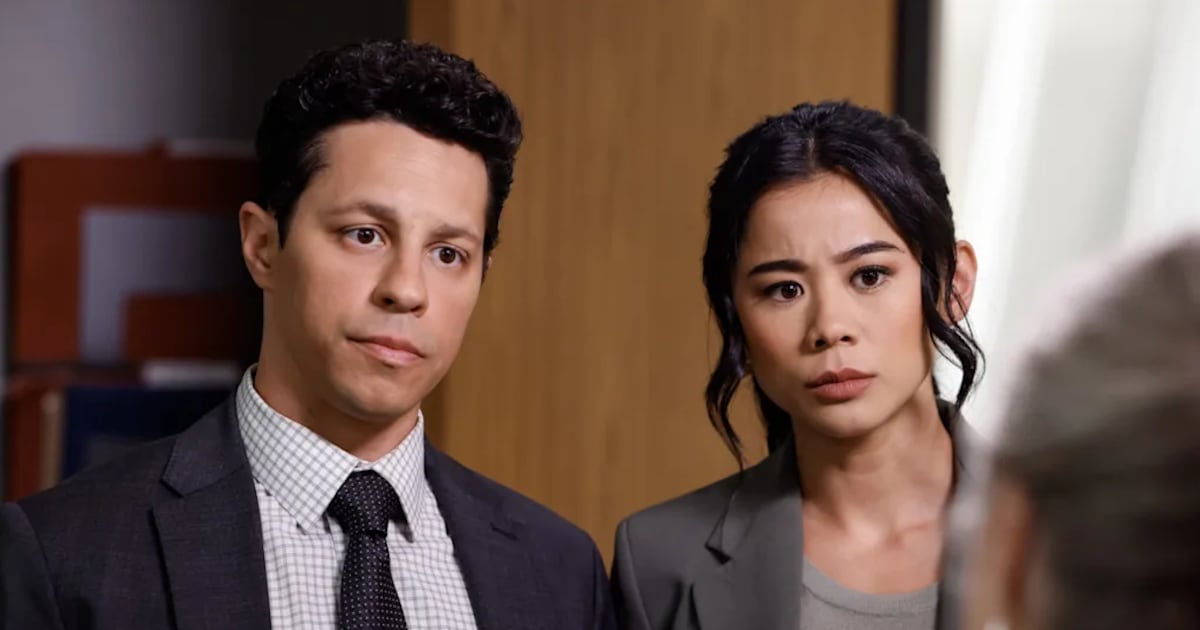(Warning: Spoilers for the Season 3 of Industry.)
Kit Harington is no stranger to playing a character with the weight of the world on his shoulders, having spent eight seasons navigating the treacherous Westeros terrain in Game of Thrones. But Sir Henry Muck’s fancy title on HBO’s high-octane finance drama Industry opens way more doors without the same branding issues as the bastard Jon Snow. Despite some catastrophic events during his company’s splashy IPO launch, Sir Henry lives to see another day as the king of his green-tech energy Lumi castle.
Kicking off where the premiere ended, Industry proves that even at an early juncture, the third season has zero interest in slowing down. Sir Henry was only introduced last week, but his “doing it for the people” schtick is already wearing thin with everyone in his orbit. “You’re just like every other overqualified, underdeveloped, parentally backstopped child. Your wins are yours, and your losses? Well, they’re someone else’s problem,” says Robert Spearing (Harry Lawtey).
Working for investment bank Pierpoint might make Robert “the parasites’ parasite,” nevertheless, Robert is beyond over having to kiss Sir Henry’s perfectly pert posterior. Suffice it to say Eric Tao's (Ken Leung) spirited pep talk from the previous episode has had an impact. Considering Sir Henry seems incapable of listening to sound advice, it is inevitable that the two men from very different backgrounds come to physical blows in the middle of the workplace playroom.

Kit Harington
Simon Ridgway/HBOThe electrical power outage that kicked off the Lumi stock trading panic is downplayed as a “slight technical problem.” Pure coincidence or not, anyone can see this National Grid issue is terrible optics, serving up the green-energy tech firm on a ready-made platter for detractors. In the high-pressure sink-or-swim environment, it is up to the traders at Pierpoint to spin the story in Lumi’s favor with varying degrees of success and maximum stress.
Throughout “Smoke and Mirrors,” phrases like “perception is reality” and “fake it until you make it” are thrown around. A rumor can sink a business; another can save it. At the end of the day, upper-class men like Sir Henry want to demonstrate they can build something from the ground up even if the house has already been paid for. Hubris is evident when Sir Henry thinks he can talk to reporters from “friendly” newspapers, even though holding an impromptu junket pours more gasoline on an already burning building.
Effectively spinning a negative into a positive requires everyone to be on the same page, but Sir Henry hasn’t even looked at the rulebook. Instead, he thinks Jonno (Ojan Genc) from the FT (The Financial Times) and Ed Cumming from “The Tele” (The Telegraph) will fall for his schoolboy charm. I watched this car crash interaction play out through my fingers as Robert frantically scribbled that Sir Henry should terminate this call (he does not), and Jonno got the scoop of the day.
Phrases like “close above 40” and “trading down at 400” might be unfamiliar (I am fluent in media, not stock jargon), but you don't need a translator to understand the panic at Pierpoint. Rapid-fire dialogue adds to an already frantic atmosphere sprinkled with Rishi Ramdani's (Sagar Radia) less savory language that would get him fired from another job. So, while Sir Henry thinks he can talk his way out of disaster, aspects like the Bank of England freezing interest rates and Pierpoint bigwig Bill Adler (Trevor White) making a guest appearance on the trading floor phones see the stock begin to improve.
As the stock rises, the traders breathe a sigh of relief and barely bask in this small victory before it starts to fall—watching this graph is akin to a heartbeat monitor on a medical show. As predicted, as soon as Jonno reports Sir Henry’s comments online, the market swings back the other way. Luckily, none of the Lumi staff filmed the ball pit scrap in which Robert “beat” Sir Henry with a sunflower plushie, because no amount of so-called “smart triage” could revive this body.
“Why does the CEO keep making himself the story?” Bill asks twice. Well, the baked-in entitlement has much to do with his inability to look inward. But Harington ensures that Sir Henry has more going for him than being an idiot toff. Sure, he literally legs it out of the meeting with the board after saying, “None of this is real,” then locking himself in the office bathroom after taking a three-day dose of medical psilocybin sourced from his mate Pierre—a chef’s kiss detail.

Sarah Goldberg
Simon Ridgway/HBOHarington”s Game of Thrones breakout role played up his physical prowess, but it wasn't until the tennis comedy 7 Days in Hell opposite Andy Samberg that he got to flex his deft comic timing. Nearly a decade after the sports mockumentary premiered on HBO, I immediately think of Harington on the rare occasion when someone uses the word “indubitably.” Now, Industry creators Mickey Down and Konrad Kay are tapping into this underutilized weapon in Harington’s performance arsenal. Sir Henry's attempts to make jokes often fall flat, but his incredulous “Why?” when Robert says he studied geography at Oxford and how he runs out of that board meeting prove that Sir Henry is hilarious (intended or not).
Sure, Harington’s physique took center stage during a shirtless handball game last week, but when he fights Robert, it does nothing for the entrepreneurs’ image. Sir Henry can’t even find a jacket to cover the rip in his Lumi-branded shirt, having to make do with a finance bro vest because he implemented a “no jacket policy” in the office. Considering all these details, it would be easy for Sir Henry to be a cliche-riddled aristocrat cut-out. However, Harington’s sincere delivery gives this character dimensions beyond being called a “posh c--t behind his back.
That insult is only slightly less derogatory than the barrage of notifications Sir Henry is receiving from friends, family, and furious investors. News alerts don’t stop pinging, and the media is already more integral in Season 3. Last week, Yasmin Kara-Hanani (Marisa Abela) was hunted by paparazzi wanting to snap the Embezzler Heiress; now, she uses this notoriety to turn the tide on the Lumi stock. Changing the narrative by engineering a rumor of her own gives Sir Henry the ingredients to tell a new story that will benefit Pierpoint. Also, that Yas is doing all of this while being super hungover (“I am hanging out my arse,” she tells Robert) is a testament to her rallying skills.
Later, Yas uses knowledge shared by coworker Sweetpea Golightly (Miriam Petche) that she learned from her friend Treacle (no one is doing character names quite like the Industry writers) that Sir Henry has a watersports kink. In a power play move, Yasmin informs Sir Henry in a fancy restaurant that they are never going to happen, but she does let him listen to the sound of her pissing.

Sagar Radia
Simon Ridgway/HBOSpeaking of names, the line reading of the episode goes to Elena Saurel, who plays Anna Gearing. “You are the godmother to f---ing Boudicca,” she stress-yells at Petra Koenig (Sarah Goldberg). As with Harington, it is the straight-faced delivery that makes it funnier. Rather than appease Anna—who is spinning out because Petra invested in gas and they are a sustainably focused company—Petra cooly tells Anna that this friendship is not something she sought. In Barry, Goldberg’s Sally Reed was a tightly wound ball of emotions waiting to spill, and Petra is oozing DGAF when building meaningful relationships in the workplace.
So, while Yas can’t help but get entangled with her co-workers and Pierpoint clients, Harper has found someone who wants to build something together but is not on board with the bulls--- and the baggage. Perhaps this is a lesson that Sir Henry needs to learn, but for now, Pierpoint has delivered a safe launch for the brand. Unfortunately, for everyone sinking time and money into this company, it is only a cosmetic win, and making your own reality is not without boundaries—even for a man with connections in high places.









